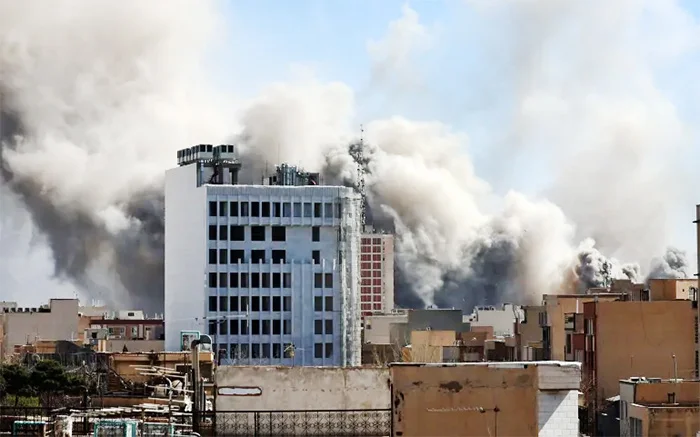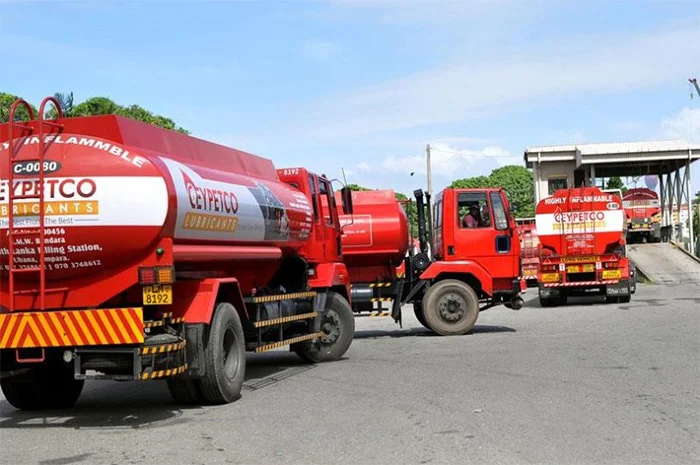News
Businessmen, politicians rape isolated forests of NWP aggravating elephant-human conflict – MONLAR

By Rathindra Kuruwita
Businessmen and politicians keep on clearing isolated forest areas in the North Western provinces and this is aggravating the human elephant conflict in the area in a dramatic way, Sajeewa Chamikara of the Movement for Land and Agriculture Reform (MONLAR) says.
Chamikara told The Island that in recent years there had been a significant spike in the human-elephant conflict in the dry zone mainly due to the massive expansion of maize and sugar cane cultivations in those areas, usually in swathes of cleared forest lands.
“The expansion of these large commercial agro enterprises has displaced elephants from their natural grazing areas and have obstructed their ability to move from one forest area to another. Thus, the elephants are compelled to raid human settlements for fodder, and this has led to many human and elephant deaths. The people affected by the human – elephant conflict are often those who are not responsible for the destruction of elephant havens. Poor farmers unable to cope up with the increasing threat from elephants are selling their lands to large companies,” he said.
Chamikara said that between 1990 and 2000, on average, 150 elephants and 40 humans died per year due to the human-elephant conflict. However, between 2010 and 2018, elephant deaths had increased to 275 and human deaths have increased to 80 per year. The situation became worse in 2019, when 406 elephants and 122 humans died due to the human – elephant conflict. In 2020, 307 elephants and 112 humans died.
Most recently swathes of forests had been cleared at places like Kiribathpelessa, Ehetuwewa, and Kurunegala, Chamikara said. That was the main catchment area of the Palukadawala Tank and was also the home to a large number of elephants. Those were also the nindagam of Nakolagane Raja Maha Vihara, he said.
“By late September about 50 acres had been cleared and another 700 acres given to several businessmen. No one had given these individuals any approval to clear these areas,” he alleged.
Chamikara said that in the Northwestern Province, a large number of elephants lived in isolated forest lands. Those animals spend the day in the forests and come out at night in search of food. Establishing farms by clearing the forest and near the tank will clearly lead to increased human-elephant conflict in the area, he said.
“There are around 5,000 acres of forest land in Nakolagane. There are about 25 tanks in these forests. This is not only a place where elephants feed, but it is also an elephant crossing. There are many tanks that are fed by the forests as well and they are vital for agriculture. The land being cleared belongs to the nindagama of Nakolagane temple,” Chamikara said.
He said that there were four settlements in the nindagama and that clearing up forests for commercial agriculture would greatly endanger those peasants. Already the misuse of lands in the nindagama had led to many issues.
“Many hectares of the nindagama has been cleared for commercial agriculture, to establish granite quarries, soil excavation, unauthorised settlements and the establishment of unsystematic elephant fences. Because of these developments, there has been a spike in human-elephant conflict and degradation of the soil, destabilising of the soil and a drop in ground water level,” he said.
Chamikara said that it was one of the many instances where land in the Northwestern province was being misused. Despite the obvious negative effects, none of the officials had done anything to stop those destructive practices.
“The clearing of these isolated forests are having a devastating impact. Everyone sees that, except those entrusted to act against such activities,” he said.
Seeveral laws too had been violated through those projects, Chamikara said. Almost all the projects violated the Flora and Fauna Protection Ordinance (FFPO), no 02 of 1937, amended by Act no 22 of 2009. According to sub section 9 a (01) of the Act, one needs permission from the Director General of the Wildlife Conservation Department to carry out any developmental activity within a mile of the border of any national park, he said.
According to sub section 9 a (02) of the Act says that to obtain permission from the Director General of the Wildlife Conservation Department, one needs to carry out an Environmental Impact Assessment based on National Environmental Act, no 47 of 1980. Sub section 10 (c) of the Act states a person or an organization that carries out any development activity of any description within a mile of the border of any national park “shall be guilty of an offence and shall on conviction be liable to a fine of not less than fifteen thousand rupees and not exceeding fifty thousand rupees or to imprisonment of either description for a term not less than two years and not more than five years or to both such fine and imprisonment.”
These also violate the Antiquities (Amendment) Act No. 24 of 1998. An Archaeological Impact Assessment needs to be obtained if one is constructing and reconstructing tanks, carrying out agricultural projects, clearing areas over two acres, and carrying out combined multipurpose development activities including housing, industries and infrastructure facilities of areas exceeding one hectare in extent. This is noted in gazette No. 1152/14 dated 04.10.2000 published under Section 47, read with Section 43(b), of the Antiquities (Amendment) Act, he says.
News
Israel resumes attacks as Iran vows to avenge supreme leader’s death

* Iran begins 40-day mourning after Khamenei killed in US-Israeli attack
* President Pezeshkian condemns killing as ‘a great crime’
Iran has begun 40 days of mourning after Supreme Leader Ayatollah Ali Khamenei was killed in ongoing attacks by the United States and Israel, according to Iranian state media.
Top security officials were also killed in Saturday’s strikes, along with Khamenei’s daughter, son-in-law and grandson. The killings mark one of the most significant blows to Iran’s leadership since the 1979 Islamic revolution Al Jazeera has reported.
Iranian President Masoud Pezeshkian condemned the killing as “a great crime”, according to a statement from his office. He also declared seven days of public holidays in addition to the 40-day mourning period.
Reporting from Tehran, Al Jazeera’s Tohid Asadi said people were pouring into the streets of the capital following the news of Khamenei’s killing.
“There will be expected ceremonies,” he said, noting they would likely take place amid continuing bombardment across the country.
Protests denouncing Khamenei’s killing were also reported elsewhere, including Shiraz, Yasuj and Lorestan.
“There will be expected ceremonies,” he said, noting they would likely take place amid continuing bombardment across the country.
Footage aired by Iranian state media showed supporters mourning at the shrine of Imam Reza in Mashhad, with several people seen crying and collapsing in grief, according to Al Jazeera.
The killing also led to protests in neighbouring Iraq, which declared three days of public mourning. In Baghdad, protesters confronted security forces in the heavily fortified Green Zone, which houses Iraqi government buildings and foreign embassies.
Videos verified by Al Jazeera showed demonstrators waving flags and shouting slogans, with witnesses saying some were attempting to mobilise towards the US Embassy. Footage also showed protesters blocking vehicles at a roundabout near one of the entrances to the area.
There was also a protest in the Pakistani city of Karachi, where footage, verified by Al Jazeera, showed people setting fire to and smashing the windows of the US consulate.
However, there have also been reports of celebrations in Iran, with the Reuters news agency quoting witnesses as saying some people had taken to the streets in Tehran, the nearby city of Karaj and the central city of Isfahan.
Meanwhile, the official IRNA news agency reported that a three-person council, consisting of the country’s president, the chief of the judiciary, and one of the jurists of the Guardian Council, will temporarily assume all leadership duties in the country. The body will temporarily oversee the country until a new supreme leader is elected.
Ali Larijani, the head of Iran’s Supreme National Security Council, accused the US and Israel of trying to plunder Iran, in an interview aired on state TV.
He also called on Iranians to unite. “Groups seeking to divide Iran should know that we will not tolerate it,” he added.

Smoke rises over central Tehran following ongoing U.S.–Israeli strikes on Iran yesterday.[EPA]
Khamenei assumed leadership of Iran in 1989 following the death of Ayatollah Ruhollah Khomeini, who had led the Islamic revolution a decade earlier.
While Khomeini was regarded as the ideological force behind the revolution that ended the Pahlavi monarchy, Khamenei went on to shape Iran’s military and paramilitary apparatus, strengthening both its domestic control and its regional influence.
Meanwhile, the Islamic Revolutionary Guard Corps (IRGC) pledged revenge and said it had launched strikes on 27 bases hosting US troops in the region, as well as Israeli military facilities in Tel Aviv.
Explosions have continued to be reported in Qatar and the United Arab Emirates, while security alerts are in place in several countries across the region.
US President Donald Trump, in a social media post on Sunday, warned Iran that it would be hit “with a force that has ?never been seen before” if it retaliated.
Iran’s retaliatory attacks since Saturday have targeted Israel and US assets across multiple Middle East countries, including Qatar, the UAE, Kuwait, Bahrain, Jordan, Saudi Arabia and Iraq.
Harlan Ullman, chairman of the strategic advisory firm Killowen Group and an adviser to the Atlantic Council in Washington, DC, said the US may have made a “big mistake” by killing Khamenei.
“Decapitation only works when you get all the leaders, and I don’t think that we got all the leaders,” Ullman said, adding that the US should not expect Iran’s leadership to enter negotiations in the immediate aftermath.
Iranian state media reported on Saturday at least 201 people have been killed in the joint US-Israeli attacks across 24 provinces, citing the Red Crescent. In southern Iran, at least 148 people were killed and 95 wounded in a strike on an elementary girls’ school in Minab on Saturday, with the toll continuing to rise, according to state media.
News
CPC has enough fuel stocks

There would be no delay in fuel shipments scheduled for April and May, the Ceylon Petroleum Corporation (CPC) assured yesterday.
Addressing a media briefing in Colombo, CPC Chairman D.J. Rajakaruna said Sri Lanka’s fuel supplies did not originate from the present conflict zone in West Asia and, therefore, supplies to the Corporation would not be disrupted.
He noted that the relevant consignments were due to arrive from India and Singapore as planned.
“We are making this statement responsibly. There is no need for the public to queue up for fuel. Distribution was not originally scheduled for Sunday (01), but due to increased demand, we have deployed all distribution staff to continue fuel issuance. Although Monday (02) is a Poya Day, fuel supplies will continue without interruption,” he said.
The Chairman added that all filling stations had been instructed not to dispense fuel into cans or barrels, warning that legal action would be taken against those attempting to purchase fuel in bulk containers for resale.
News
Lanka, Pakistan strengthen ties at 13th JEC

The 13th Session of the Sri Lanka–Pakistan Joint Economic Commission (JEC) was successfully held recently in Colombo, reinforcing the strong and longstanding economic and diplomatic ties between the two countries.
The Sri Lankan delegation was led by Wasantha Samarasinghe, Minister of Trade, Commerce, Food Security and Cooperative Development, while the Pakistani delegation was headed by Haroon Akhtar Khan, Special Assistant to the Prime Minister of Pakistan for Industries and Production. The session concluded with the signing of the Agreed Minutes by both Co-Chairs, formalising cooperation across multiple sectors.
The Pakistan High Commission in Colombo said that in the IT and digital economy, both sides agreed in principle to establish a Joint Working Group on IT and telecommunications, promote collaboration in emerging technologies, and support each other in international digital forums.
Industrial cooperation was a key focus, with discussions on expanding trade in chemicals, polymers, engineering goods, glassware, surgical instruments, and pharmaceuticals. Sri Lanka invited Pakistani pharmaceutical companies to explore investment opportunities in designated pharmaceutical zones. Both countries also agreed to strengthen collaboration in Export Processing Zones and enhance support for small and medium enterprises through their respective development agencies.
Significant progress was made in agriculture and livestock, including cooperation on meat exports, livestock farming, seed certification, sanitary and phytosanitary harmonisation, pest risk analysis, and capacity building. Procedures for the export of Sri Lankan pineapples and avocados to Pakistan were advanced. Both sides explored electronic phytosanitary certification (ePhyto), blockchain-based seed traceability systems, and increased trade in agro-commodities such as rice, sesame, and onions.
In education, the JEC emphasised academic and research cooperation, faculty and student exchanges, accreditation and quality assurance, and promoting Pakistan as a higher education destination for Sri Lankan students. A Joint Working Group on Education and Science was proposed, alongside renewal of several institutional Memoranda of Understanding.
Cooperation in science, technology, and innovation will continue under existing bilateral frameworks, with plans for joint research in advanced materials, biotechnology, climate change mitigation, and emerging technologies. Collaborative research projects, student exchanges, and co-authored publications were highlighted as key initiatives.
Health sector collaboration will focus on joint research, academic exchanges, regulatory cooperation on therapeutic goods, capacity building, fast-track registration of essential medicines, public-private partnerships, epidemiological surveillance, and coordinated responses to disease outbreaks.
Maritime cooperation was also discussed, with Pakistan offering technical expertise, training, and industrial collaboration through its shipbuilding institutions. Both sides explored enhanced maritime connectivity, including transshipment, port cooperation at Karachi and Gwadar, direct shipping routes, logistics integration, and maritime training programs.
Commerce secretary-level talks reviewed the progress of the Pakistan–Sri Lanka Free Trade Agreement (PSFTA), assessing current implementation and identifying measures to further enhance bilateral trade and economic cooperation.
On the sidelines, Special Assistant Haroon Akhtar Khan held discussions with Sri Lankan Cabinet members on collaboration in industry, labor and foreign employment, and health sectors.
Both delegations expressed satisfaction with the outcomes of the 13th JEC and reaffirmed their commitment to regular engagement and effective implementation of agreed initiatives. It was mutually agreed that the 14th session will be held in Islamabad, with dates to be confirmed through diplomatic channels.
-

 Opinion4 days ago
Opinion4 days agoJamming and re-setting the world: What is the role of Donald Trump?
-

 Features4 days ago
Features4 days agoAn innocent bystander or a passive onlooker?
-

 Features6 days ago
Features6 days agoBuilding on Sand: The Indian market trap
-

 Opinion6 days ago
Opinion6 days agoFuture must be won
-

 Features5 days ago
Features5 days agoRatmalana Airport: The Truth, The Whole Truth, And Nothing But The Truth
-

 Business6 days ago
Business6 days agoDialog partners with Xiaomi to introduce Redmi Note 15 5G Series in Sri Lanka
-

 Business5 days ago
Business5 days agoIRCSL transforms Sri Lanka’s insurance industry with first-ever Centralized Insurance Data Repository
-

 Sports7 days ago
Sports7 days agoCEA halts development at Mandativu grounds until EIA completion













